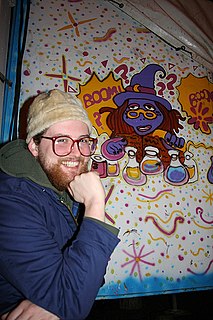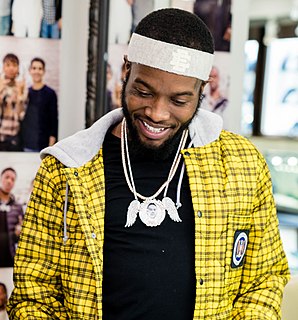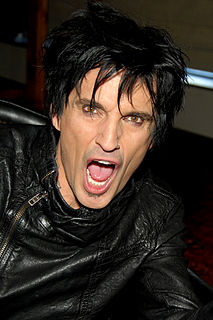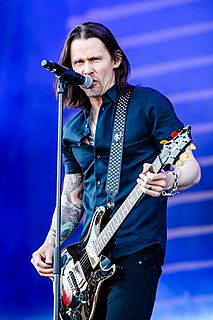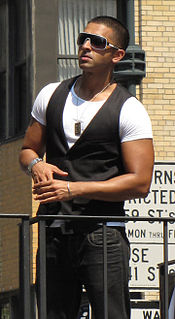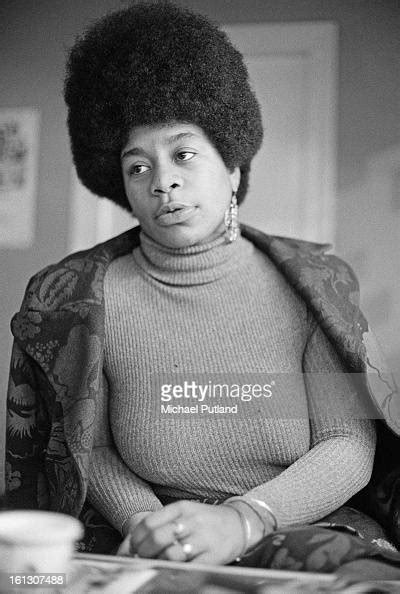A Quote by Dan Deacon
Finishing a song is definitely the hardest part. It's, you know, you can polish it forever and then whittle it down into something it wasn't and be like, "I need to build it back up," which is why some tracks have 400 versions. But I guess you know when it's done when...I have a maximalist approach to sound when I can't find any more space to put new sounds.
Related Quotes
I guess I don't really know any other way to do it, it just feels like the natural way to do things for me. Like - if I'm writing a song - it has to have some sort of value. Or it only has some kind of value to me, if it's something really personal. It has to mean something to me. I guess it is a little uncomfortable, or it's a little embarrassing sometimes, to know that stuff that honest is out there. But, when I hand off the thing, when it's totally done and mastered and sent, I kinda feel like it doesn't belong to me anymore.
For AERO, I wanted to revisit in 5.1 some existing tracks in order to give them that space I had imagined when I originally composed them, and also to compose some new tracks for this new technology. All of the existing tracks in AERO have been performed with the original instruments, re-recorded and spatially arranged/spatialised for this new dimensional sound experience without betraying their very essence.
I'm no longer beholden to the sacredness of the recorded song as some kind of ultimate standard by which every performance of the song is measured. I like to diversify, that there are multiple versions of every song. And the songs incorporate a lot of improvisation, and an element of chance, and I think that's exciting. There's no one true formulation of a song, they have various manifestations depending on the space we're in. I like that.
I have a notebook that I take with me everywhere. I free-write in it when there are situations that I know I can write a song about. I will just start writing everything that I can think of while trying to write some things that are kind of poetic or sound like they could be in a song. Then, after the music is written, I go back and look at my subjects to see which one I think woud go with what music. Then, I formulate it into a melody and get the song.
That's definitely my goal, and always has been through the Universal Zulu Nation, is to show that music breaks down all that foolishness and can bring all types of people together, especially when you can mix it and shape it. That's the beauty of sampling: taking the old sound and recreating it and making something new, or bringing back the old sounds, mixed with some heavy grooves and beats, so people can remember. "Oh, I remember that, back in the day."
A lot of people are really quick to say, "That song sounds like this." Or you - "He's tryin' to sound like this." And I'm always like, "You're damn right I am. That's how - that's why we're all here." You know, we all grew up idolizing another musician. That's how this works. That's how music is created.
Sam [Phillips] wanted I Walk The Line up - you know, up-tempo. And I put paper in the strings of my guitar to get that (vocalizing) sound, and with the bass and the lead guitar, there it was. Bare and stark, that song was when it was released. And I heard it on the radio and I really didn't like it, and I called Sam Phillips and asked him please not to send out any more records of that song.
My father got a job at Bradford University in textiles. And he came for - I guess, you know, why do people immigrate? - like, for a better life to find, you know, a new world. And, you know, I think he always - he saw it as an opportunity. And so yeah so we came to this coal mining town in the north of England and that's where I grew up.
Everyone's [ me, Iain Cook and Martin Doherty] equally involved in all the writing. Normally we'll start with a sample or a drumbeat, or a synth sound or something like that, and that will spark the initial idea. And then we'll write an instrumental sketch of a song, and then we put on a nonsense vocal melody, which is always my favourite bit because it obviously sounds amazing.
